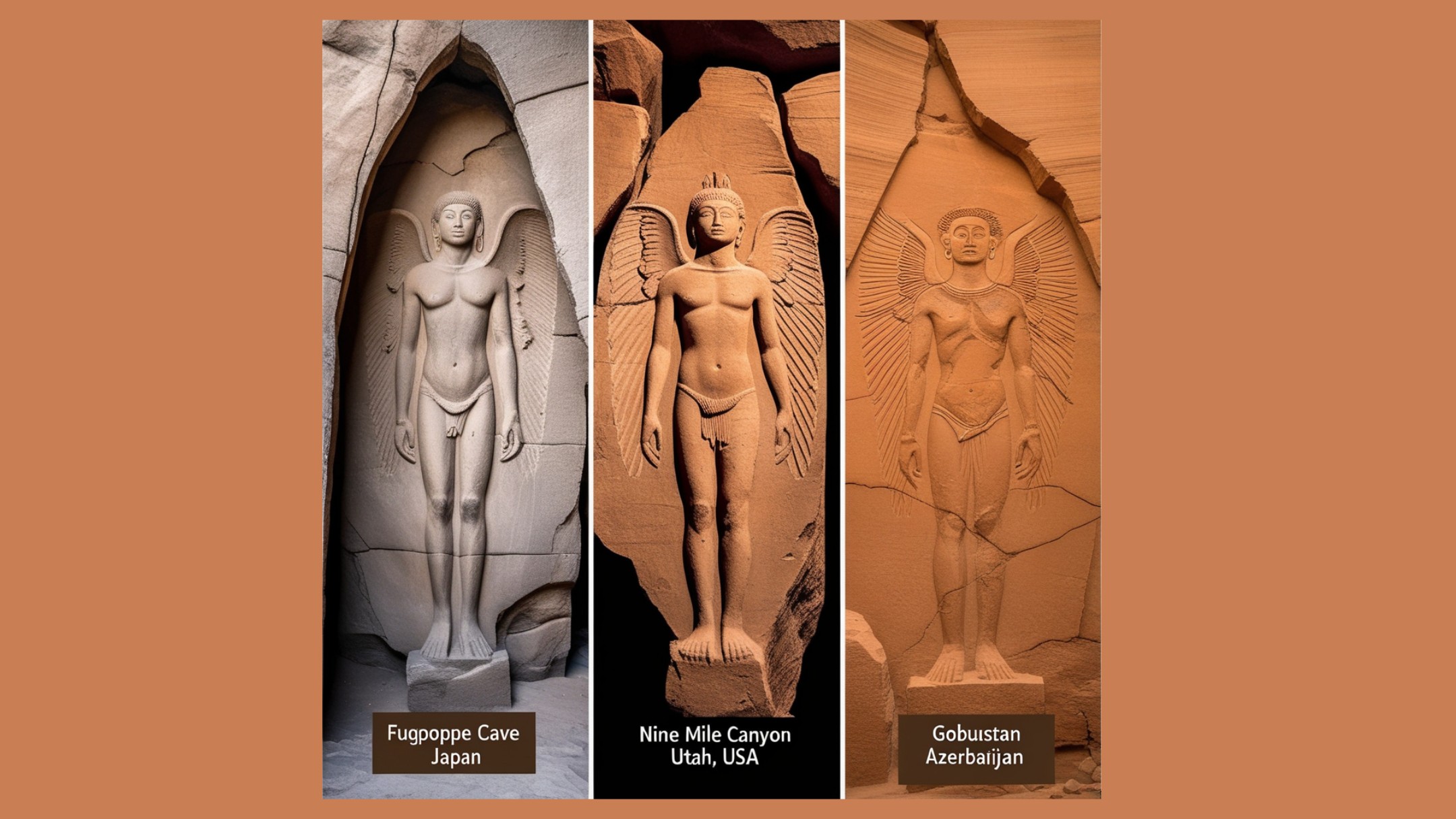Historical Winged Petroglyphs: A Global Thriller
Historical Winged Petroglyphs: A Global Thriller
Blog Article
Across the globe, historical petroglyphs that includes winged or traveling figures spark fascination and debate. Present in disparate locationsâÂÂFugoppe Cave in Japan, Nine Mile Canyon in Utah, United states of america, and Gobustan in AzerbaijanâÂÂthese carvings, established A huge number of a long time aside, share a strikingly related motif. What do these winged beings depict?
In Japan's Fugoppe Cave, relationship again seven,000 years, human-like figures with wing-like extensions propose spiritual or shamanic significance. Likewise, the Nine Mile Canyon petroglyphs, created 1,000âÂÂ2,000 several years back by Indigenous American cultures, depict anthropomorphic figures that might symbolize spiritual messengers or shamans. Meanwhile, AzerbaijanâÂÂs Gobustan rock art, up to ten,000 many years previous, characteristics winged figures considered to stand for mythological deities or divine beings.

Theories about this shared imagery range from impartial progress driven by universal human ordeals to the potential for ancient cultural exchanges. Regardless, these carvings emphasize a deep human fascination with flight, transcendence, and spirituality, offering a glimpse into the shared creativity of our ancestors.
Explore this intriguing secret even more and uncover humanityâÂÂs ancient connections etched in stone. Report this page